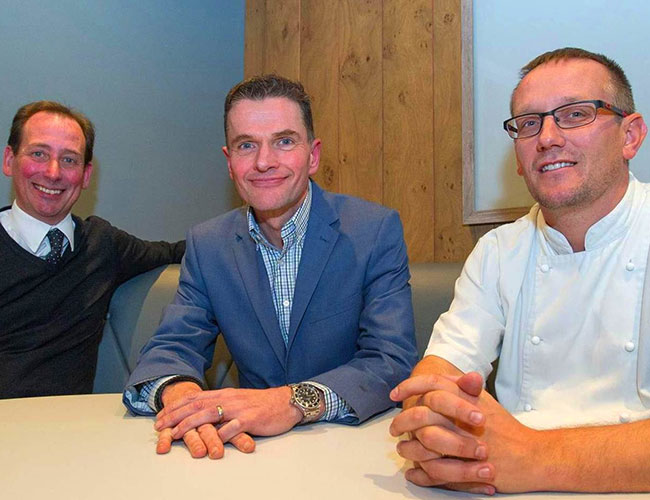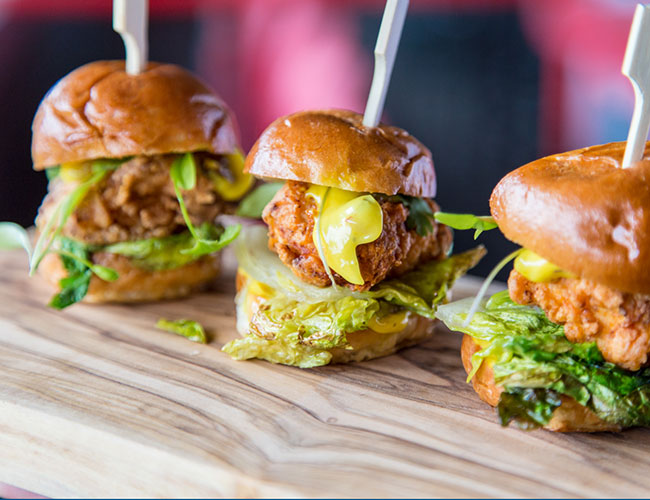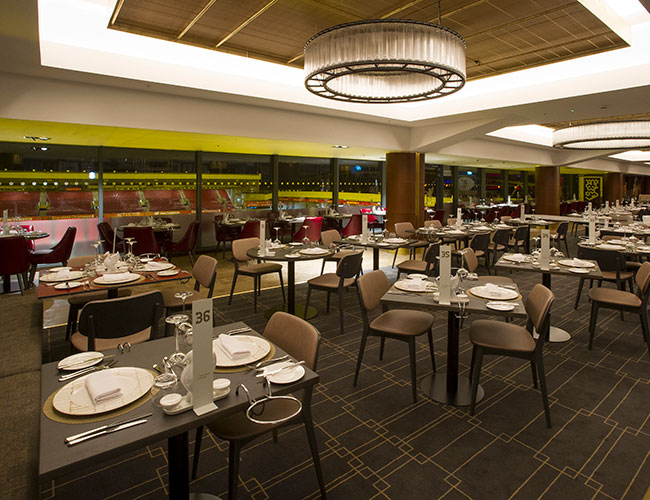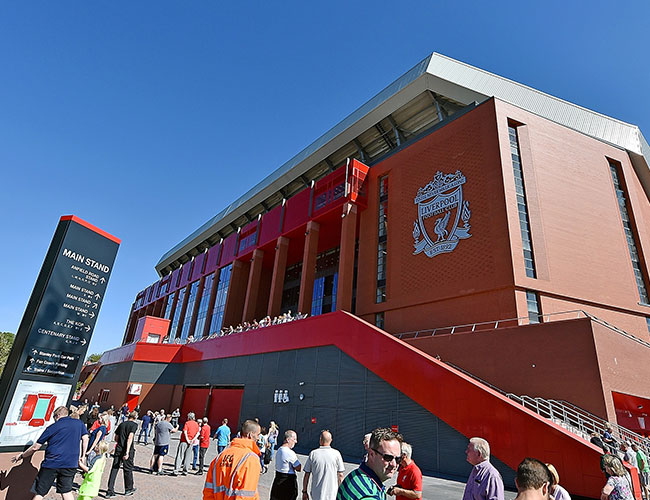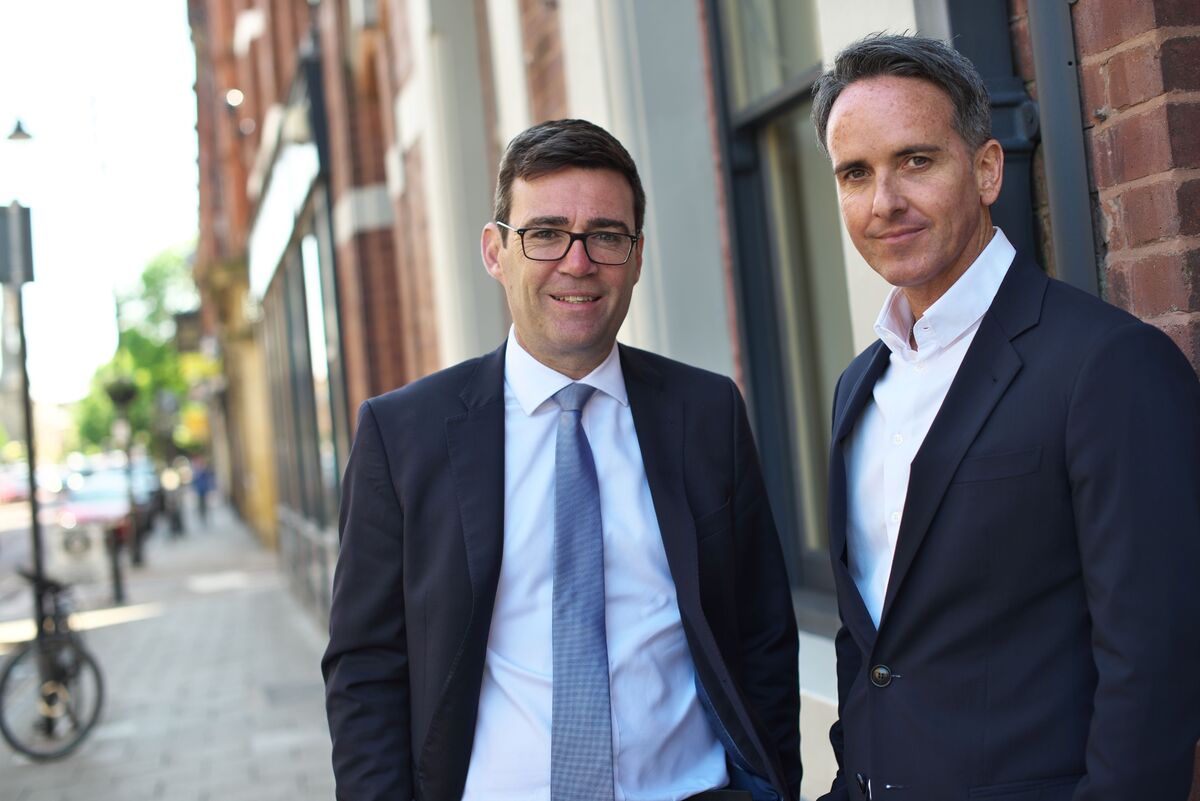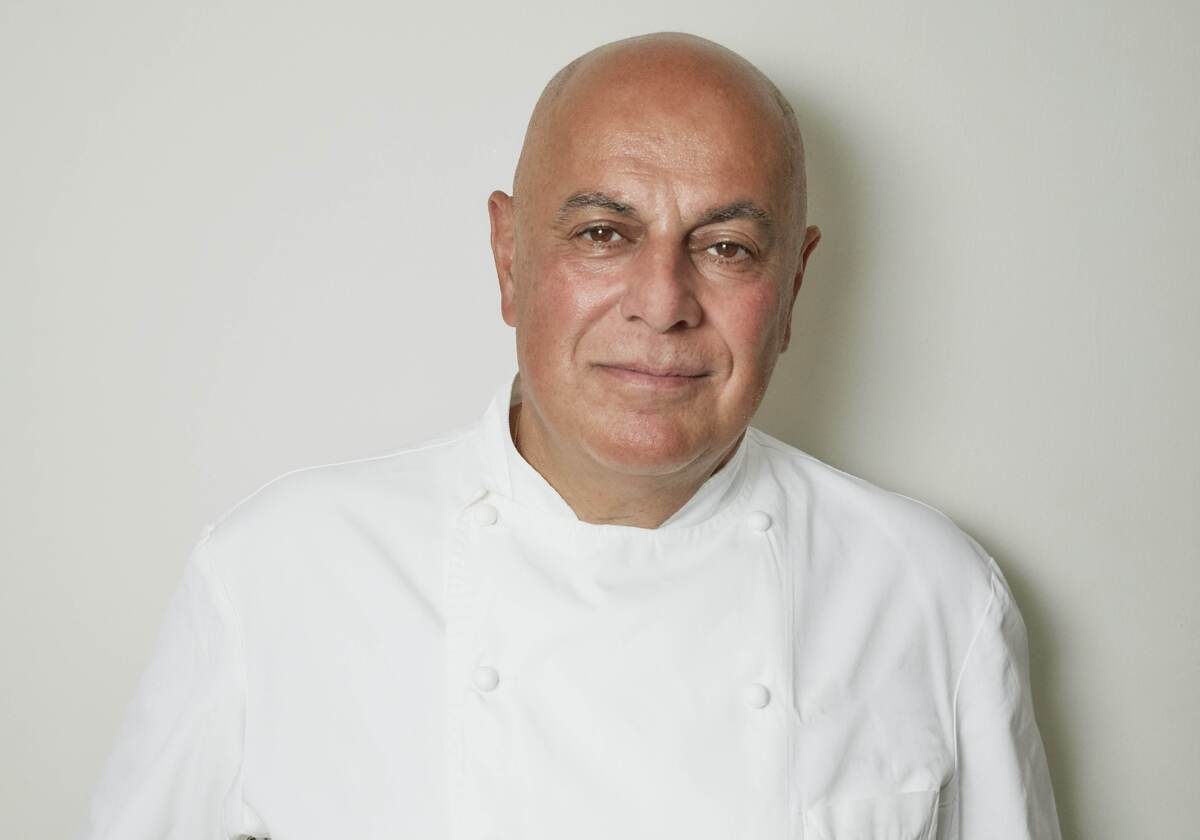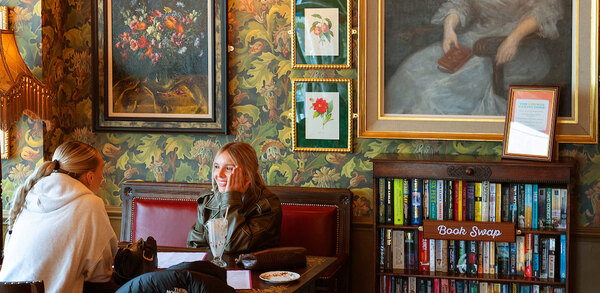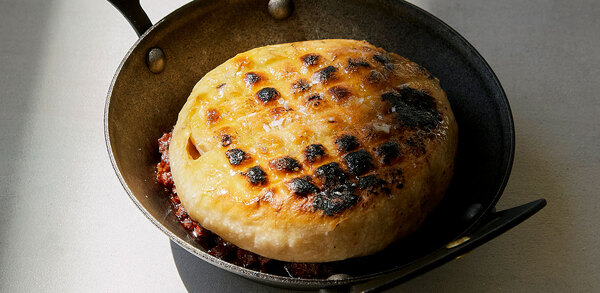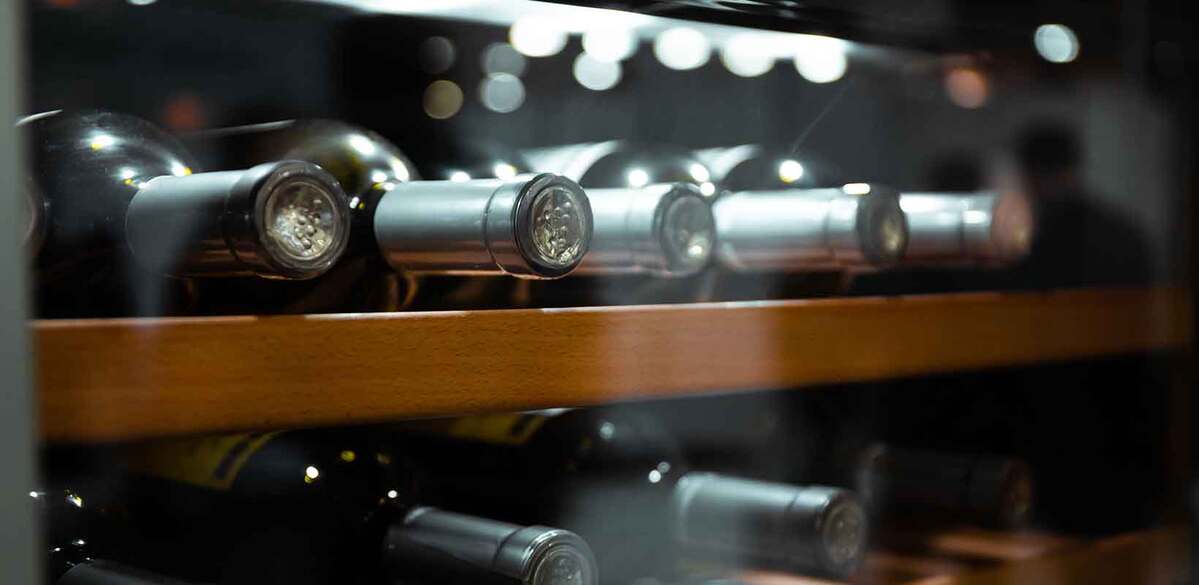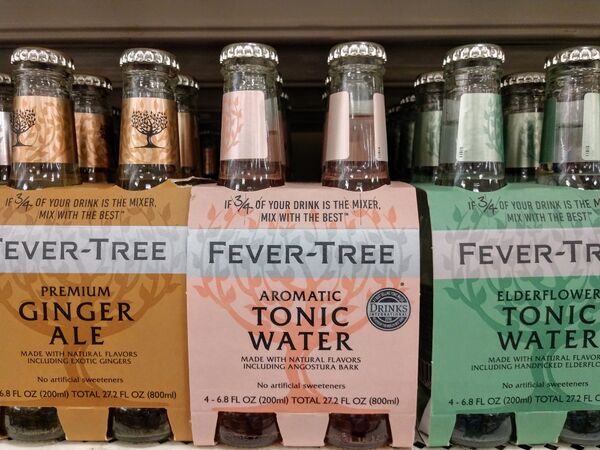Behind the scenes at Liverpool FC's matchday catering
Liverpool FC's new Main Stand is a game-changer as far as matchday hospitality goes. Piers Zangana takes a look behind the scenes at the football club's in-house catering operation
You'll Never Walk Alone, the famous anthem now synonymous with Liverpool Football Club, has become less a song and more a mantra. Initially made famous in 1945 in the musical Carousel, the song has unified passionate Liverpudlians as they've embarked on some incredible journeys, both on and off the pitch.
But, as with any business, sustainable growth starts at home and, in Anfield Stadium, Liverpool FC has a very special and historic place it calls home. So special that Fenway Sports Group (FSG), the US-based owner that acquired the club in 2010, decided to dispose of much-maligned plans to move Liverpool FC a few miles down the road to a shiny new stadium. Instead, much to the pleasure of the fans, it decided to stay put and develop Anfield, adding a new Main Stand. According to some reports, the new stand has cost more than £100m to build â" a significant investment by any measure. The impressive 20,500 capacity construction is now one of the largest all-seater single stands in European football.
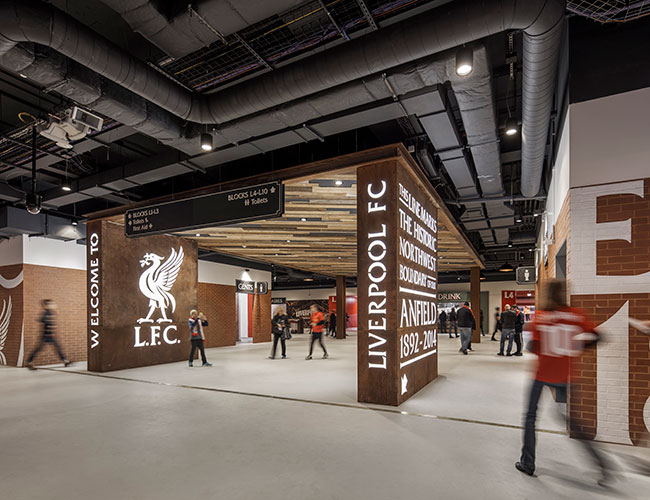
The club has increased its overall capacity from 45,000 to more than 54,000, creating more than 1,000 new match-day roles. The new Main Stand is reported to expect to generate more than an additional £20m per season for the club, through ticket sales and hospitality. FSG bought the club for £300m, and it is now estimated to be worth more than double that amount. Itâs safe to say that the new facilities will enable Liverpool FC to compete commercially.
However, one could argue, commercialising such an institution in British football could, in some part, dilute the very essence of the club. Andrew Parkinson, operations director at Liverpool FC, disagrees: âWe have a very close relationship with our supporters and the community, which is why it was important they were front of mind when we made any commercial decisions around hospitality. Thatâs why we spent a lot of time trying to integrate what makes our club, and our city, such a wonderful place. We wanted to embed our personality into the hospitality areas.â
âWe were very open to exploring all opportunities but, after many conversations with different providers, we decided to stay in-house. We have a great team here who truly understand the fanbase and our identity,â he says.
Identity of the city
The history of Liverpool is its USP, and the integration of its identity is omnipresent at Anfield. Pictures of Liverpool football legends are plastered everywhere in the hospitality areas and, taking this sense of shared community values further, various walls are lined with paintings of famous Liverpudlians who have had an impact on the city itself. Pictures of William Rathbone, founder of the now London-based Rathbone Brothers investment house, and famous ship-owner John Bibby, stare proudly at you as you dine in the executive lounge. Youâll even, perhaps expectedly, see shots of the Beatles in the Anfield Beat hospitality lounge.
Prior to the development of the hospitality areas, market research, as one would expect, was thorough. The increased revenue generated by Premier League clubs has seen many new developments and rebuilds of stadiums across the UK, so, the team behind the new hospitality areas within Liverpool could have been forgiven for spending some time in rivalsâ venues to understand the latest developments.
He says: âWe didnât just want to replicate another modern Premier League football stadium and wanted to see how we could recreate atmospheric food environments which not only brought variety but also energy. We also went to see a number of clubs in Europe and, of course, stadiums in the US.â
The US is often held up as the pinnacle of the complete stadium experience. However, as Parkinson explains, it isnât exactly fit for purpose for football fans in the UK.
âPricing is a real point of difference between US and UK stadium visitors in general concourse areas,â he says. âWhile there are premium packages and options available, we need to ensure that we do not price our customers out. Our fans can range from a working class kid right the way through to a CEO of a FTSE 100 company, so itâs important to provide relevant packages for everybody. Our focus must be on the fans first.â
Food options
The diversity Parkinson talks of is reflected in their hospitality packages, with options ranging from shared areas serving a variety of street food, right the way through to high-end fine-dining packages served in corporate boxes. You can, of course, still also tuck into a famous Scouse pie from the Paddock Bar in the fansâ concourse area.
The club has also developed its own retail brand rather than use existing products on the market. Cuttill explains: âWe didnât want to take the easy option and bring in the usual companies to provide the food and retail offer. Thatâs why we introduced our own L4 retail brand, which sits in and around the different areas of the stadium.â
âIn time, we will also look at bringing in some smaller food companies from the local community to help provide food in areas such as our fanzones. This will help to keep our offer fresh and share the space we have with local partners.â
The club has already taken steps to involve the community in its food offer by opening its first allotment, which will produce fresh, organically grown produce for match-day catering. The 1,200 sq m allotment, situated in neighbouring Tuebrook, will grow and harvest seasonal produce, including fruit, vegetables and honey. The club plans to engage local schools to help cultivate the allotment, while educating pupils about food and highlighting the importance of nutrition, hygiene and healthy eating.
So outside its successful footballing heritage, the team at Anfield proudly calls on another of its USPs.
âOur people are our greatest asset,â says Cuttill. âWe are very fortunate to live in a city where the people were made for hospitality. The warmth you receive from Liverpudlians is second to none. We never need to train our people on things like this â" it comes naturally to them â" and the best bit is, youâll never be short of laughter when you are around a Scouser. The engagement with our customers is really what makes us different.â
The legendary Scouse wit that Cuttill refers to doesnât just stop with its people. Visit the Anfield Dugout hospitality space and you will find street food concepts such as LFC Chicken or pre-match penne. The club has also created coasters shaped like music discs, giving a nod to the famous musical foursome from the city.
Cuttill adds: âWe really wanted to have a bit of fun with the offers and be a little cheeky where we could. The feedback has been greatâ.
As any hospitality provider will tell you, seeking customer feedback is important and can sometimes be a challenge. âWe donât have any difficulty in knowing how our customers feel,â jokes Liverpool-born Chris Marshall, executive head chef at the club.
âLiverpudlians are known for their openness and they arenât afraid to tell you how they feel. If you werenât providing food that matched their requirements, youâd soon know about it.â
Cuttill adds: âEngagement in feedback surveys have always been high. We are very fortunate really.â
Chefs and recruitment
Marshall, who joined the club after a career in hotels and restaurants, said: âIâve never worked in a place like this before. Your customers are fans so thereâs a real sense of camaraderie. The chefs too; there are so many people working here who are big Liverpool fans, so you know they will be working together for something they really believe in. Weâve had so much interest from across the North West as everybody wants to work here. Itâs a very important part of the community.â
Given its status within the community, the clubâs recruitment policy has been carefully considered. Ahead of the opening of the new Main Stand, the club developed its own in-house Ready to Work course, which was designed to help unemployed Liverpool residents back into work. The course offers candidates support and qualifications, with the aim of helping them access hospitality opportunities at Anfield.
On any given matchday, there could be almost 200 chefs working in the stadium. Marshall explains how the team introduced a novel approach to recruitment. âWe needed to be sure that they not only had the cooking ability, but they also had the right attitude. Thatâs why we held a cook-off style assessment process and filmed it live on the clubâs TV channel. It was a bit of fun, but also put our candidates in a real pressure environment, so we knew we were getting the best.â
Non-matchday
Whilst meticulous preparation for the matchday offer was important, as Parkinson explains, there is far more to the modern football stadium than meets the eye. âIn theory, although unlikely, we could only be operating matchday hospitality 19 times this year. So it was really important that we were able to compete and generate revenue on non match-days tooâ.
The competition for large-scale events spaces is significant. Every club is now competing for business during down time and a stadium can be an expensive asset if not being used. The club has introduced flexible areas within the Main Stand, which can host up to 1,600 guests for exhibitions in the Dugout and 1,000 for dinners.
Parkinson agrees: âThis is a really important area for us and one we are now focusing on more closely. There are several large number venues in the area, which we can now compete with.â
Although competition is fierce, not many in Liverpool can offer a view of the famous Anfield turf. âEverybody wants to see some grass,â quips Cuttill. âThe new areas can now give people a view of the pitch while they are in their company conference, wedding or party, and this is a real selling point.â
While success on the pitch is hard to guarantee, the clubâs focus on creating a hospitality product where supporters unite and share their experiences does ensure one thing â" fans of Liverpool FC and visitors to the stadium will never eat alone.



